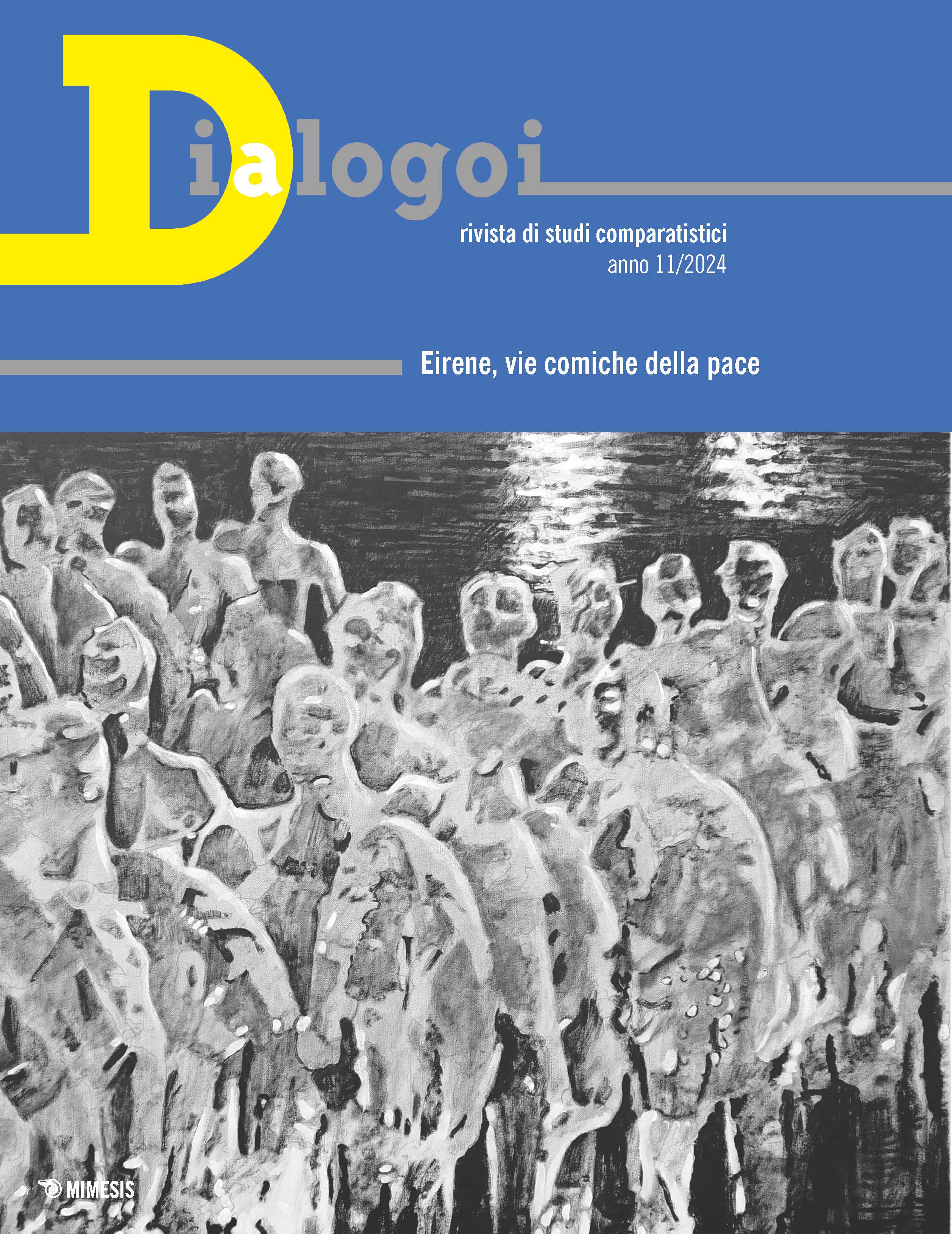Abstract
Eraclito insegna che nell’infinita circolarità del divenire «giorno e notte sono una cosa sola» (DK 22 B 57) e che sono un’unica manifestazione del «divino», come «guerra e pace» (DK 22 B 67), secondo una circolarità implicita ed evidente in cui tutto trapassa non nel suo contrario, secondo un ragionamento banale ed estremizzante, bensì nel suo contiguo, in base a una continuità in cui essere e divenire sono la stessa cosa. In questa prospettiva solo apparentemente paradossale si svolge questo contributo su “guerra e pace”, da intendere come la stessa cosa (nella guerra ci sono le premesse della pace e viceversa), mentre in via preliminare si possono individuare diverse corrispondenze e sovrapposizioni tematiche nella poesia di John Donne, A Lecture upon the Shadow, che nei primi versi dichiara: «…I will read to thee / a Lecture, Love, in loves philosophy», per cui un possibile richiamo a Eraclito non è poi così… peregrino. E, a ben pensare, anche Quasimodo, Montale e Ungaretti sono in qualche modo “eraclitei” nella loro percezione della contiguità/continuità tra vita e morte. Il mio contributo consisterà soprattutto in una riflessione sulle possibili traduzioni e interpretazioni di tre frammenti di Eraclito in cui è protagonista la guerra.

